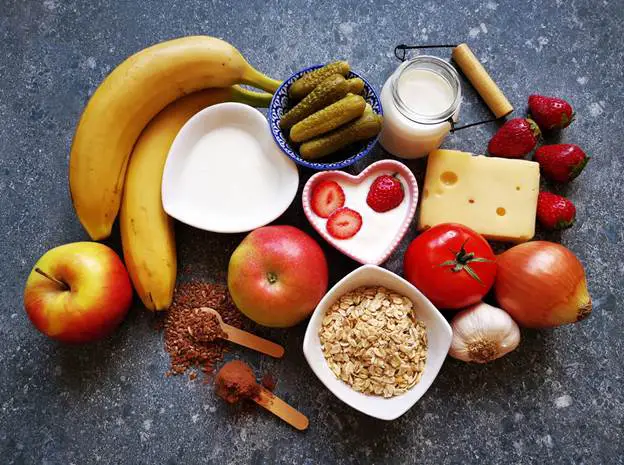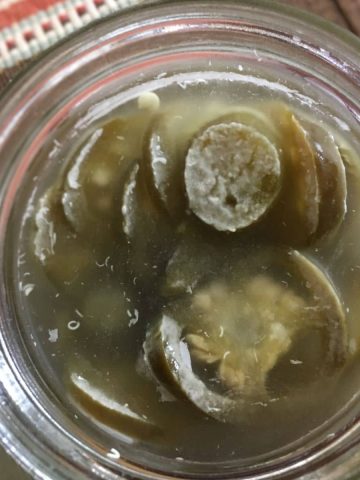All yogurt is made with live and active cultures called Streptococcus thermophilus and Lactobacillus bulgaricus. Both strains are responsible for the delicious yogurt taste you're familiar with.
After the fermentation process is complete, many brands add additional strains of bacteria to improve the health benefits of the yogurt. Look for strains like L. acidophilus and B. lactis and consider eating various brands to maximize the diversity of bacteria you eat.
How Many Probiotics are in Yogurt?
Still, most single servings of yogurt don't contain enough probiotics needed to provide health benefits.
Studies have found that the probiotic levels in a single serving of yogurt were sometimes up to 25 times lower than what clinical trials have found to be effective.
Due in large part to the dosage being tested in these clinical trials being much higher than those found in a single serving of the yogurt they sell.
A now famous example, Dannon's Activia contains Bifidobacterium lactis DN-173 010, which lab studies have shown can improve regularity and decrease stomach pain and bloating in those with irritable bowel syndrome.
But the researchers also found that a person would have to eat between two to 25 servings of Activia per day to achieve the effects observed in clinical trials. (1)
Although consuming one serving of yogurt per day most likely will not provide enough probiotics, or a variety of probiotic strains, to obtain the health benefits shown in clinical research, a good quality yogurt can still offer essential nutrients beyond probiotics.
Yogurt is a source of protein, calcium, and other minerals. Be sure to avoid yogurts high in added sugars, artificial sweeteners, or artificial flavors and colors.
How To Tell if a Yogurt Has Probiotics
Generally, you can expect highly-processed yogurt to deliver significantly fewer health benefits than other types of yogurt. Highly-processed yogurt is sometimes heated or pasteurized after fermentation, which can kill a significant amount of the beneficial bacteria present.
If you want the best yogurt possible, look for brands with minimal processing, added sugar, or strange ingredients.
Here are some brands of yogurt that I recommend for their probiotic content.
- Stonyfield Organic Whole Milk Probiotic Yogurt. Contains an incredible variety of bacteria strains, including L. rhamnosus, L. paracasei, L. bulgaricus, S. thermophilus, Bifidobacterium BB-12, and L. acidophilus.
- Nancy’s Organic Probiotic Whole Milk Yogurt. Contains a vast variety of bacteria, including S. thermophilus, L. bulgaricus, Bifidobacterium lactis BB-12, L. acidophilus, L. rhamnosus LB3, and L. casei.
- FAGE Total Lowfat Greek Strained Yogurt. Contains several bacterial strains, including S. thermophilus, L. acidophilus, Bifidus, L. casei, and L. bulgaricus.
- Siggi’s Whole-Milk Icelandic Cream-Skyr Yogurt. Contains numerous strains of bacteria, including S. thermophilus, L. delbrueckii subsp. lactis, L. acidophilus, L. delbrueckii subsp. Bulgaricus, B. lactis, and L. acidophilus.
There are also many good vegan brands of yogurt. Here are some of the best probiotic plant-based yogurts.
- GT’s Living Foods Cocoyo Yogurt. Coconut-based and contains many strains of bacteria, though the bacteria in the proprietary blend aren’t disclosed on the label. Each jar contains 100 billion probiotics.
- Forager Project Cashew Milk Yogurt. Cashew-based and contains numerous bacterial strains, including L. delbruekii LE, S. thermophilus, B. bifidum, L. bulgaricus, L. acidophilus, and L. plantarum LM.
The Health Benefits of Probiotics
Probiotics have a vital role in gut health. The microorganisms that comprise your gut microbiome are essential for proper digestion and nutrient absorption. You may suffer from poor digestive health and reduced overall well-being if you don't have a good gut microbiome.
When you eat yogurt made from culturing milk with beneficial bacteria, you can nourish your body with probiotics and restore the balance in your digestive system.
Given how sterilized our modern environment is, having a reliable source of beneficial bacteria in your diet is more important than ever.
Probiotics can help you absorb vitamins, protein, and other nutrients. If you boost your gut microbiome, you’ll quickly feel the benefits of better nutrient absorption across your entire body.
Why you should take probiotics with antibiotics
Consuming probiotics is especially important if you are taking antibiotics. Antibiotics play a critical role in killing bad bacteria and destroying infections. However, they can not differentiate between harmful and good bacteria, so they destroy both.
Consuming probiotics can help you maintain and restore your gut microbiome. Probiotics also reduce the risk of antibiotics-associated digestive issues like diarrhea.
Due to how they boost the digestive system, it is possible to reduce the severity of many digestion-related health issues by regularly eating probiotic foods.
Many people have been able to reduce the severity of gas, bloating, inflammation, diarrhea, constipation, and lethargy by eating probiotic foods daily.
The probiotics themselves aren’t the only benefit of eating probiotic foods. The process of fermentation results in the formation of nutrients like Vitamin B-12. These vitamins are essential for mental and physical well-being.

How to Choose a Yogurt With Beneficial Probiotics
Choosing yogurt with beneficial probiotics can be difficult when you don’t know what to look for. Many brands use misleading practices to make customers assume that their yogurt offers probiotic benefits, even when it contains little to no beneficial bacteria.
When reading a yogurt label, there are a few things you should look out for. You should only purchase yogurt labeled as containing live and active cultures.
This label means the yogurt contains at least a few CFUs per gram. In other terms, it will have enough bacteria to provide your gut with some health benefits.
You should also shop for yogurts that contain minimal additives and added sugar. While the absence of additives and added sugar doesn’t directly boost gut bacteria, it does mean that your gut will be much more accommodating to good bacteria.
Sugar and additives are often responsible for allowing harmful bacteria to feed and throw your gut microbiome out of balance.
According to U.S. guidelines, all probiotic yogurt must contain Streptococcus thermophilus and Lactobacillus bulgaricus. Many brands add extra strains of bacteria to their yogurt.
You may encounter strains like L. acidophilus, B. bifidum, B. lactis, L. casei, and even L. rhamnosus. Eating as many strains of bacteria as possible is ideal since improving the diversity of your gut microbiome has been shown to multiply the health benefits.
I recommend reading the label closely before selecting a yogurt. Not all yogurt is created equal, but whether you’re shopping for cashew milk yogurt or sour skyr, it is possible to find yogurt that will give you incredible probiotic benefits.
Purchasing various brands with various bacteria strains is a great way to maximize the diversity of bacteria you consume.
Conclusion
Choosing the right kind of yogurt is crucial to enjoying the benefits of probiotics. While bacteria are vital to producing yogurt, not all yogurt has sufficient qualities of probiotics to provide real health benefits to consumers.
While most yogurt is labeled as containing live and active cultures, not all brands provide the same dosage. Selecting a quality brand with probiotics will ensure you enjoy the best digestive health benefits.
Yogurt is an excellent part of a healthy diet, but you don’t have to eat yogurt alone. Incorporating other probiotic foods like kimchi and kombucha into your diet can help you enjoy a variety of nutrients and beneficial microbe strains.

Frequently Asked Questions
Can You Get Enough Probiotics From Yogurt Alone?
Some yogurt brands contain so little bacteria that you would need to eat ten or more servings to get a decent dose of probiotics.
If you want the most diversity in your gut microbiome, it’s smart to eat a variety of fermented foods to ensure you’re getting plenty of good bacteria in your diet.
What Are Some Other Sources of Probiotics?
Some other sources of probiotics include fermented pickles (not vinegar pickles!), kimchi, sauerkraut, fermented vegetables, kefir, natto, tempeh, miso, kombucha, traditional buttermilk, and certain types of cheese.
Look for cheeses labeled as containing live and active cultures. Gouda, cheddar, mozzarella, and cottage cheese all frequently contain probiotics.
Are All Probiotics Created Equal?
Not all probiotics are created equal. Some fermented foods contain exceedingly low doses of probiotics.
Vinegar-based pickles are another false probiotic you may encounter. You should always verify that the food you buy has probiotics by checking the label thoroughly.
Are There Any Side Effects of Probiotics?
You may experience bloating or gas while your body acclimates to the probiotics you eat. You can minimize this by slowly raising your intake or reducing how much probiotic food you eat.
If you have a suppressed immune system or severe acute pancreatitis, consult your physician before consuming fermented foods.
It’s also worth noting that certain probiotic foods have amines that may trigger a headache for certain people.
Resource:




